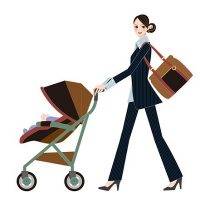October 11, 2016
American workers prefer the 9 to 5 but would take a pay cut in exchange for home working 0
 According to a new study by researchers at Princeton University and Harvard University, the average American worker is indifferent to flexible working hours and instead prefers a set 40-hour workweek. According to the study, most workers aren’t willing to take even a small pay cut to determine their own working hours. However, if given the option to work from home, many workers — especially women — would take an 8 percent wage cut to do so. The findings, published by the National Bureau of Economic Research (NBER), also show that workers consistently dislike irregular work schedules set by employers on short notice. They would even give up one-fifth of their salary to avoid working evenings or weekends. Nearly half of jobseekers would not take an irregular-schedule job even if it paid a quarter more than a 9 to 5 job. This is true even of workers who currently have irregular work schedules.
According to a new study by researchers at Princeton University and Harvard University, the average American worker is indifferent to flexible working hours and instead prefers a set 40-hour workweek. According to the study, most workers aren’t willing to take even a small pay cut to determine their own working hours. However, if given the option to work from home, many workers — especially women — would take an 8 percent wage cut to do so. The findings, published by the National Bureau of Economic Research (NBER), also show that workers consistently dislike irregular work schedules set by employers on short notice. They would even give up one-fifth of their salary to avoid working evenings or weekends. Nearly half of jobseekers would not take an irregular-schedule job even if it paid a quarter more than a 9 to 5 job. This is true even of workers who currently have irregular work schedules.





















 In America at least, the great symbol of corporate conformity is the office cubicle. Satirised in the Dilbert cartoons and a staple in any movie about the degrading aspects of modern working life, the cubicle provides a perfect shorthand way of portraying an individual crushed by the corporate jackboot. Yet what these things miss is the propensity of people to personalise their surroundings and claim a space as their own, even if only for the short time they may be there. This seems to be particularly the case when it comes to office design and so we were much taken with
In America at least, the great symbol of corporate conformity is the office cubicle. Satirised in the Dilbert cartoons and a staple in any movie about the degrading aspects of modern working life, the cubicle provides a perfect shorthand way of portraying an individual crushed by the corporate jackboot. Yet what these things miss is the propensity of people to personalise their surroundings and claim a space as their own, even if only for the short time they may be there. This seems to be particularly the case when it comes to office design and so we were much taken with 
 The 21st Century has seen an explosion of self employment in the UK, and most people who have become self employed have done so for positive reasons, claims a new report from the UK Government’s Office for National Statistics. According to the
The 21st Century has seen an explosion of self employment in the UK, and most people who have become self employed have done so for positive reasons, claims a new report from the UK Government’s Office for National Statistics. According to the 












August 8, 2016
Universal basic income is an idea whose time has come at last 0
by Mark Eltringham • Comment, Flexible working, Technology, Wellbeing
(more…)